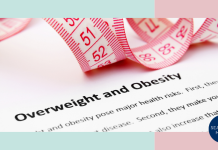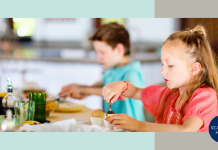A quick look around the elementary school during pollen season tells me seasonal allergies are everywhere. There are irritated watery eyes, sneezing, and congested noses as far as the eye can see. My children are no exception.
This is a tale of two sisters, and my secret to managing seasonal allergies.
I will start with my own childhood. My grandmother pumped me full of local honey citing its ability to quiet coughs, and decrease seasonal allergies. As an adult I have family members that are avid beekeepers. Honey is magical in many ways, and it’s about to get even better. My grandmother believed that honey made from local bees had the power to help my body manage seasonal allergies.
The term “local honey” can have many interpretations. Grandma considered honey made within a 10 mile radius of her home to be ideal. She explained that most bees travel a few miles from the hive for pollen. However, a bee might travel up to tens miles away from the hive if it means a superb flower selection. Yet, in my opinion, I’m more flexible. Honey that has been made within my county is pretty local. There are lots of places to purchase local honey on the Seacoast.
Could regularly eating local honey help seasonal allergies?
Perhaps I was onto something. Could honey help seasonal allergies? I decided to ask my pediatrician. For the record, our pediatric practice is quite accustomed to my holistic inquiries. They always kindly answer my questions. The doctor confirmed honey can be a very effective remedy for coughs. However, it turns out there is no scientific evidence to suggest that local honey will improve seasonal allergies.
Nonetheless it DOES contain environmental pollen. Interesting.
It was right about then that I had a miniature epiphany. I began to scheme how I could conduct my own informal experiment with honey. I have two daughters who are very close in age. Both live in the same environment, and attend the same activities. In addition, both girls present with seasonal allergies. Do you see where I’m going with this? Cue mad scientist laugh…
Immediately I stocked up on local honey. One daughter some on her English muffin each morning. We did this for months, until she moved onto other breakfast options. Some days I gave her honey right from the teaspoon. I know what you are thinking, what about your other daughter? But she isn’t actually a honey lover. As a result, she was fine with not eating it daily.
This is the part where it gets really interesting.
After six months of local honey consumption, pollen season was open for business. We observed both girls very carefully. There was no change in itchy watery eyes. Both girls suffered the same fate. Yet, there was a clear decrease in both congestion and sneezing in the daughter that had eaten local honey. Even as the season intensified, her symptoms were less. We observed that very heavy pollen days, meant an increase in congestion. Clearly, no surprise. Using a handheld oxygen meter, I was able to ascertain that the daughter who ate daily honey had higher O2 levels. The levels remained higher even when she had heavy congestion. I’m no scientist, but this had my full attention.
It appeared that by eating local honey, my daughter was ingesting pollen. Over the six month period, her body became less sensitive to local pollen. Ultimately, I observed that she experienced fewer seasonal allergy symptoms. The concept is called immunotherapy (another writer shared her son’s experience with immunotherapy and his peanut allergy). Tiny amounts of whatever you are allergic too, may make you less sensitive. She had consumed approximately a tablespoon daily on her English muffin. This amount was slightly less from the teaspoon.
I encourage you to ask your pediatrician.
It’s always a good idea to speak to your child’s doctor before offering supplements or home remedies. Honey is not suitable for very young children, under the age of one. Nonetheless, my informal experiment supports the notion honey and seasonal allergies might be the missing link we were looking for.










